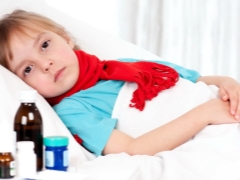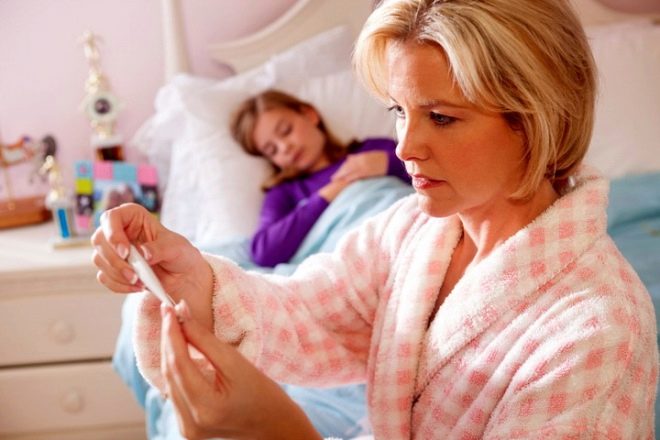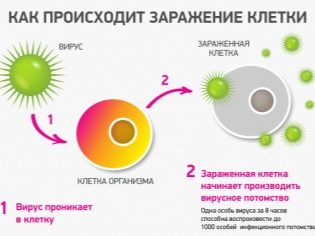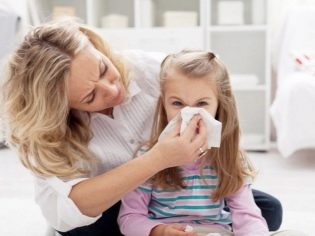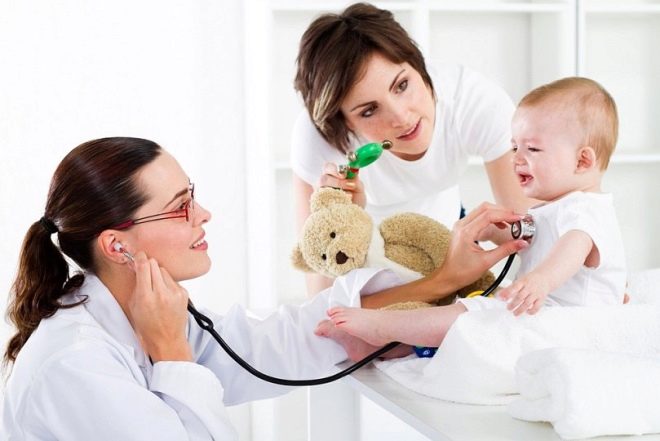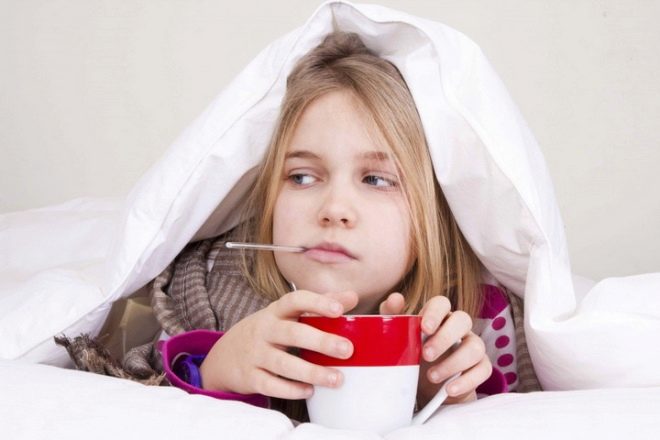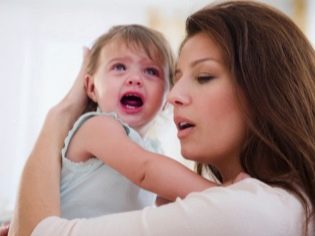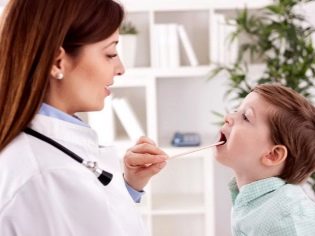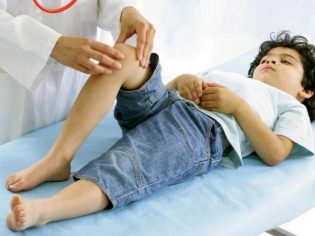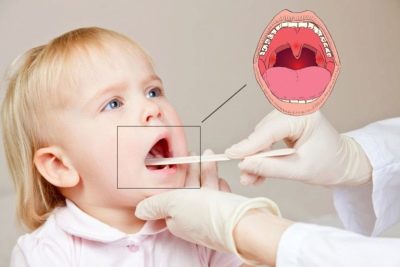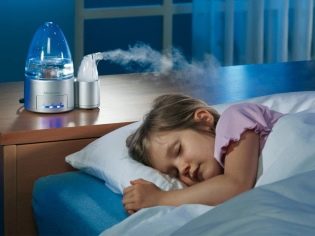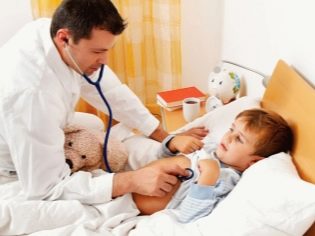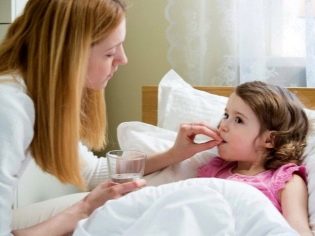Possible complications after flu and ARVI in children
Even the most caring and attentive parents can not fully protect their child from acute respiratory viral diseases. Most often, children suffer from acute respiratory viral infections, sometimes there are cases of flu. Everyone knows that it is not so much the viruses themselves that are the causative agents of the disease, but the possible complications of a viral infection. About how and why complications can develop, we will discuss in this article.
The likelihood of complications
Medical statistics do not have sufficient data on the exact incidence of ARVI, since this group of viral infections is the most common on the planet. Flu cases are usually easier to calculate. But the known frequency of complications after influenza or ARVI. Negative effects occur in approximately 15% of cases.
Viruses, penetrating into the body of the child through the upper respiratory tract, destroy the epithelial cells of the nasal passages, nasopharynx, larynx. Then they enter the bloodstream and are carried throughout the body with the bloodstream, causing intoxication symptoms, high fever. The defeat of the respiratory system in the acute stage of the disease usually occurs in children in the form of a runny nose, dry cough. Intoxication can manifest abdominal pain, nausea, and loose stools. After 4-5 days, the fever and the main signs of the infection begin to recede.
The fight against the virus significantly reduces the immunity of the child, there is a real threat of the accession of a secondary infection, most often - bacterial. The load on the respiratory organs during illness can lead to the occurrence of chronic pathology.
Complications in young children are most likely. The less years a child has, the weaker his immune defense is. Adolescents are less affected by influenza and ARVI. The most dangerous from the point of view of the probability of occurrence of negative consequences is considered to be from six months to 3 years.
Causes
Most often, complications develop in children who do not have adequate nutritionally balanced and rich in vitamins, suffering from anemia. Immunocompromised babies are also at risk. These are children suffering from diseases of the immune system, and children who have one or more chronic diseases.
The probability of occurrence of complications increases with improper treatment, for example, when taking antibiotics during influenza or ARVI, with non-compliance with the clinical recommendations of the doctor regarding bed rest or control of body temperature.
The refusal of parents of standard treatment in favor of treatment with folk remedies also increases the chances that the child will have complications.
Improper care during an illness can also affect its outcome. If parents try to wrap the baby in warm blankets or turn on the heater in the patient's room, as a result of which the child breathes dry air, the virus on the dried mucous membranes gets more freedom of action. Failure to follow the correct drinking regime is fraught with dehydration.
Ignoring the need for a recovery period, when the child is sent to kindergarten or school immediately after the temperature drops, also often leads to the development of severe complications.
Alas, it is impossible to calculate all the risks, since the reaction of an individual organism to a particular virus cannot be predicted. That is why sometimes complications appear even in those children who were properly cared for and who were properly treated.
Possible effects of viral disease
All the complications that are possible during and after a viral disease are divided into specific, non-specific and bacterial. The complications of the acute period of the disease are specific. So, in infants, febrile seizures may develop due to high fever (it may reach 40 degrees with the flu). Predict and prevent febrile seizures are virtually impossible, they occur only in children who have a certain genetic predisposition to the convulsive syndrome.
High fever creates another specific threat associated with the effect of the virus - dehydration, especially if the child has such signs of intoxication as vomiting and diarrhea. A virus that has penetrated the bloodstream creates the likelihood of developing hemorrhagic syndrome, and the use of acetylsalicylic acid-based antipyretic drugs in childhood increases the likelihood of the development of the dangerous and often lethal syndrome of Ray.
In young children, in the acute phase of the disease, a critical narrowing of the larynx - stenosis can develop, the appearance of croup is possible, which threatens acute respiratory failure and suffocation. The younger the child, the more pronounced in high heat can be neurotoxicosis. One of the most dangerous specific complications are meningoencephalitis, myocarditis, polyradiculoneuritis.
Often, in the recovery period, myositis of the gastrocnemius muscles, as well as rheumatoid arthritis, in which the child complains that he has sore legs, muscles, joints, calves, in the morning after waking up, he almost cannot walk.
If the acute period has passed without features, it is possible that after a slight relief for 5 days the child may feel bad again. The bacterial complication of a viral infection begins with a high probability. Most often it is bronchitis with a long and painful cough, pneumonia, pulmonary edema. It is possible the appearance of sinusitis.
Often there is a complication on the ears - from simple otitis to irreversible neuritis of the auditory nerve, in which there is complete or partial hearing loss. A fairly common consequences of the accession of a bacterial infection is a pharyngeal or paratonsillar abscess. May develop angina, meningitis, purulent lymphadenitis. Kidney damage is not excluded, in particular glomerulonephritis.
Non-specific complications include exacerbation of pre-existing chronic diseases, especially respiratory and cardiovascular diseases.
How to prevent complications
There is no right recipe to avoid the negative effects of influenza and ARVI, but it’s realistic to reduce the risks, because each parent must be well aware of what needs to be done so that the recovery proceeds more smoothly and easily.
- Put the baby to bed. Bed rest - the key to successfully overcoming the disease. Attempts to move the infection "on the feet" are not welcome. It is not surprising that a child sleeps a lot during an illness - he has a strong weakness and fatigue.
- Provide fresh air, moisten the air and actively water the baby. Drink should be warm. Milk should be avoided unless it is an infant who is breastfed. The more the child drinks, the more actively mom and dad moisturize the mucous membranes of his respiratory tract, the easier it will be for ARVI and flu. If the baby is sweating profusely, the amount of fluid should be increased.
- Call a doctor. Be sure to in all cases - for infants and children up to 3 years.With a severe course of the disease, the doctor will need everything else. The severity of the condition is indicated by high fever, which cannot be reduced by antipyretic drugs, vomiting, clouding of consciousness, and convulsions.
- Do not give any medication without a doctor's recommendation.. In no case do not use antibiotics, if there are no bacterial complications, do not “get involved” with drugs that have immunomodulating and immunostimulating effects.
- Monitor the condition of the child. If he coughs strongly at night, if hoarseness occurs, breathing is difficult, a rash appears, you should call an ambulance.
- During the recovery period, take steps to quickly raise and restore weakened immunity. The child must be given time to recover, during which he must walk, rest more often, eat well. Sports and tempering are best left to a later date, when the disease recedes completely. Any overload immediately after SARS and flu can lead to nonspecific complications.
About what complications occur after flu and ARVI in children, see the next video.
